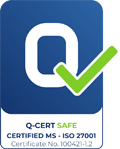Quick Links
As one of the leading messaging platforms with over 2 billion users worldwide, WhatsApp has undergone significant changes in its business model and pricing structure. In this blog post, we delve into the latest updates and their impact on businesses.
WhatsApp's Evolution as a Business Platform
WhatsApp Business was launched in 2018 as a dedicated platform for businesses to connect with their customers. It offered features such as business profiles, automated greetings, quick replies, and labels, enabling businesses to provide better customer service and engage with their audience. Since then, WhatsApp has continued to enhance its business offerings based on user feedback and market demands.
The New Pricing Structure
Effective June 1, 2023, WhatsApp Business Messaging Platform will introduce a revised pricing structure where businesses will be billed based on a per 24-hour conversation basis. The rates will vary depending on the conversation category. The conversations started by businesses will be sorted into three groups: utility, authentication, and marketing. On the other hand, the current user-initiated conversations will be referred to as service conversations.
Let’s explore these categories in detail:
Utility Conversations
This category is designed to facilitate specific, agreed-upon requests or transactions, as well as provide updates to customers regarding ongoing transactions. It encompasses post-purchase notifications and recurring billing statements. Customers must opt in to engage in utility conversations.
Authentication Conversations
Businesses can use this category to authenticate users using one-time passcodes. Authentication conversations may occur at multiple steps in the login process, such as account verification, account recovery, or integrity challenges
Marketing Conversations
This category includes things like special deals, offers, helpful updates, and invitations for customers to respond or do something. If a conversation doesn’t fit into the utility or authentication categories, it is considered a marketing conversation. Customer opt-in is necessary for marketing conversations.
Service Conversations
The fourth category, service conversations, covers all user-initiated conversations. These conversations are initiated by customers and aim to help them resolve inquiries or seek assistance. Service conversations do not require customer opt-in.
These new conversation categories provide clarity and organization, ensuring that businesses can effectively engage with their customers while respecting their preferences and intentions.
WhatsApp aims to align their conversation pricing with the value they provide compared to regular text messages.
WhatsApp has raised the prices for marketing messages and lowered the cost for utility messages, acknowledging the platform’s enhanced engagement features, multimedia capabilities, and re-engagement opportunities. The rates for service conversations will remain unchanged, aligning with the existing rates for user-initiated conversations.
Implications for Businesses
The updated pricing structure has both benefits and implications for businesses utilizing WhatsApp as a communication channel.
Let’s dive into some of the key implications:
Is there still a 24-hour limit to reply to user messages?
Yes, businesses still have the 24-hour window to respond to user messages on WhatsApp. However, there is now an exception. If customers initiate a conversation through a free entry point like a click-to-WhatsApp ad or a call-to-action from a Facebook page ad, businesses have an extended period of three days (72 hours) to reply.
When it comes to sending multiple message templates, if a business sends a new template of the same category within the 24-hour timeframe, there won’t be any extra fees. However, if the business sends two different types of templates, separate conversations will be initiated, and charges will be applied based on the message category.
It’s important to highlight that businesses will only be charged for conversations after the first reply from the business to a user message is delivered. If a business receives a message from a user but doesn’t reply, no charges will be incurred.
Business-initiated conversations will be grouped into utility, authentication, and marketing.
For conversations initiated through free entry points:
In the past, when customers clicked on “Click to WhatsApp” or used the Call to Action (CTA) feature on Facebook Page ads, it started a referral conversation where WhatsApp fees were waived for 24 hours.
However, starting from March 1, 2023, businesses can now communicate with customers for up to three days (72 hours) without any charges.
Until May 31, 2023, businesses can send messages that fall into both user-initiated and business-initiated conversations without any charges during the referral conversation window. Starting June 1, 2023, businesses can send messages related to marketing, utility, authentication, and service conversations without any charges during a 72-hour period.
For free tier conversations:
Currently, Meta offers up to 1,000 free conversations per month for each WhatsApp Business Account (WABA). However, from June 1, 2023, the free conversations will be limited to a maximum of 1,000 free service conversations per WABA per month. This means that only user-initiated conversations will be counted towards this limit.
The allocation of 1,000 free conversations is separate from any free conversations received through click-to-WhatsApp ads or call-to-action buttons on Facebook pages.
How it works
Here are four use cases to illustrate how the new WhatsApp Business Messaging costs work:
1. Opening a marketing conversation within a service conversation:
This scenario involves a service conversation followed by a marketing template. Charges apply separately for each conversation category.
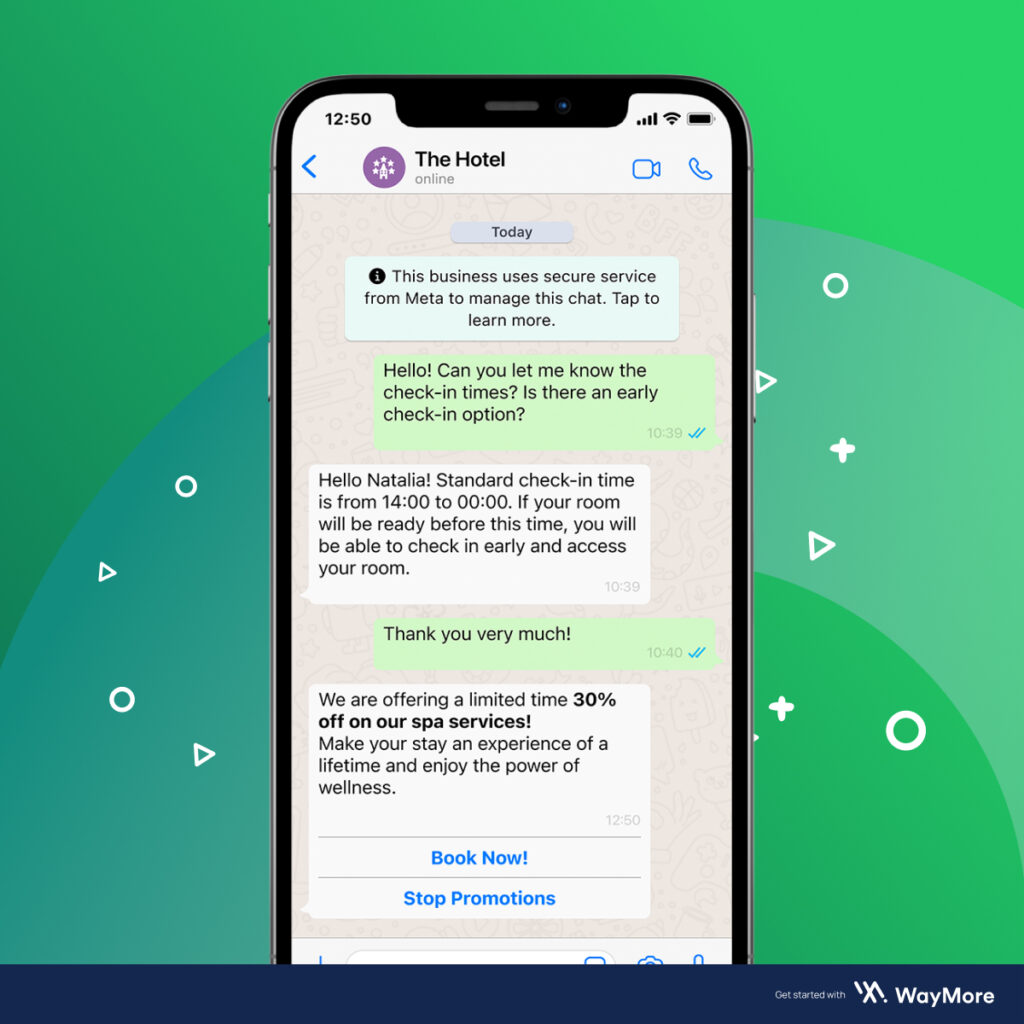
At 10:39, a service conversation is initiated when a business responds to a customer message. At 12:50, while the service conversation is still ongoing, a marketing template is delivered, which triggers a separate marketing conversation. Consequently, there is a charge associated with the service conversation and an additional charge for the marketing conversation.
2. Opening a utility conversation within a marketing conversation:
In this case, a marketing conversation is followed by a utility template. Charges will be applied for both the marketing and utility conversations.
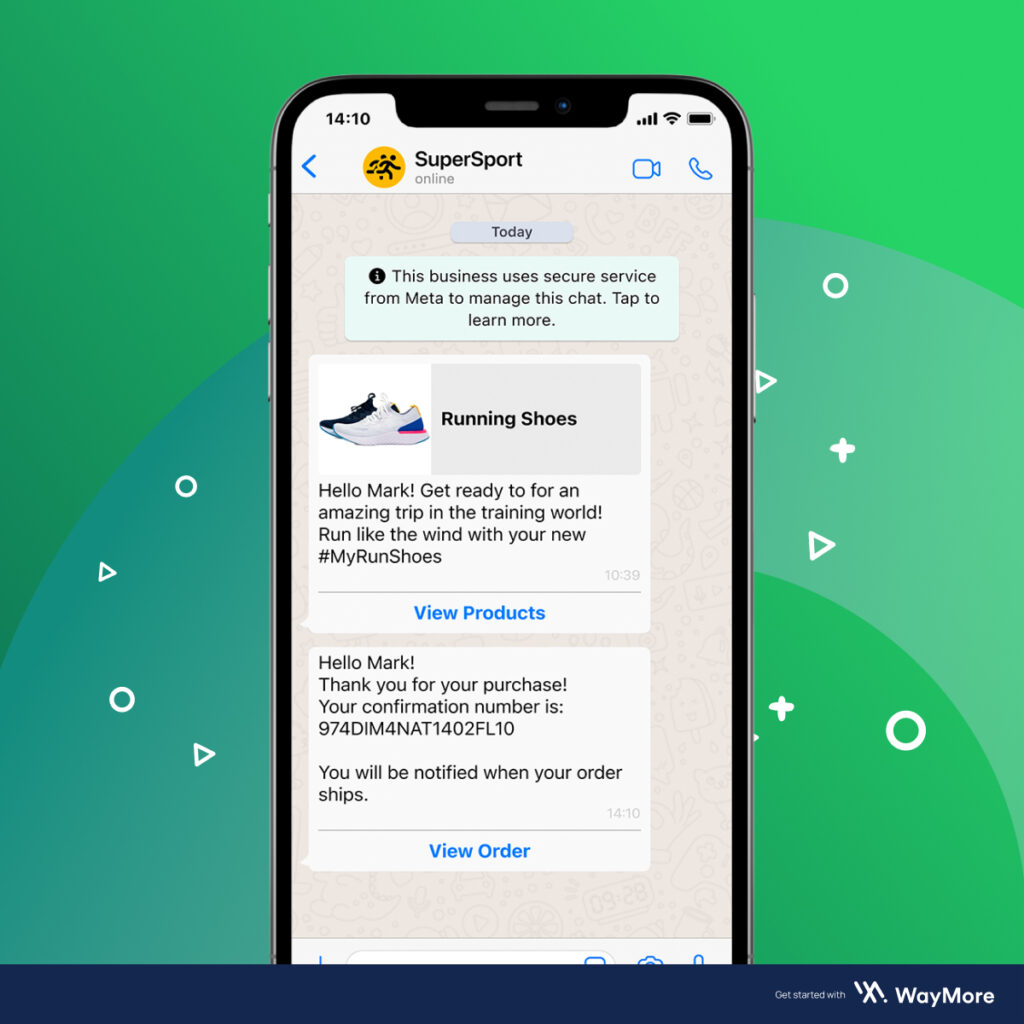
A marketing conversation is opened at 10:39 when a marketing template message is delivered. Later, with the marketing conversation still open, a utility template is delivered at 14:10. This opens a separate utility conversation. The result is one charge for a marketing conversation and one charge for a utility conversation.
3. Opening two templates of the same category:
If a business sends two utility templates, charges will apply for only one utility conversation since they belong to the same category.
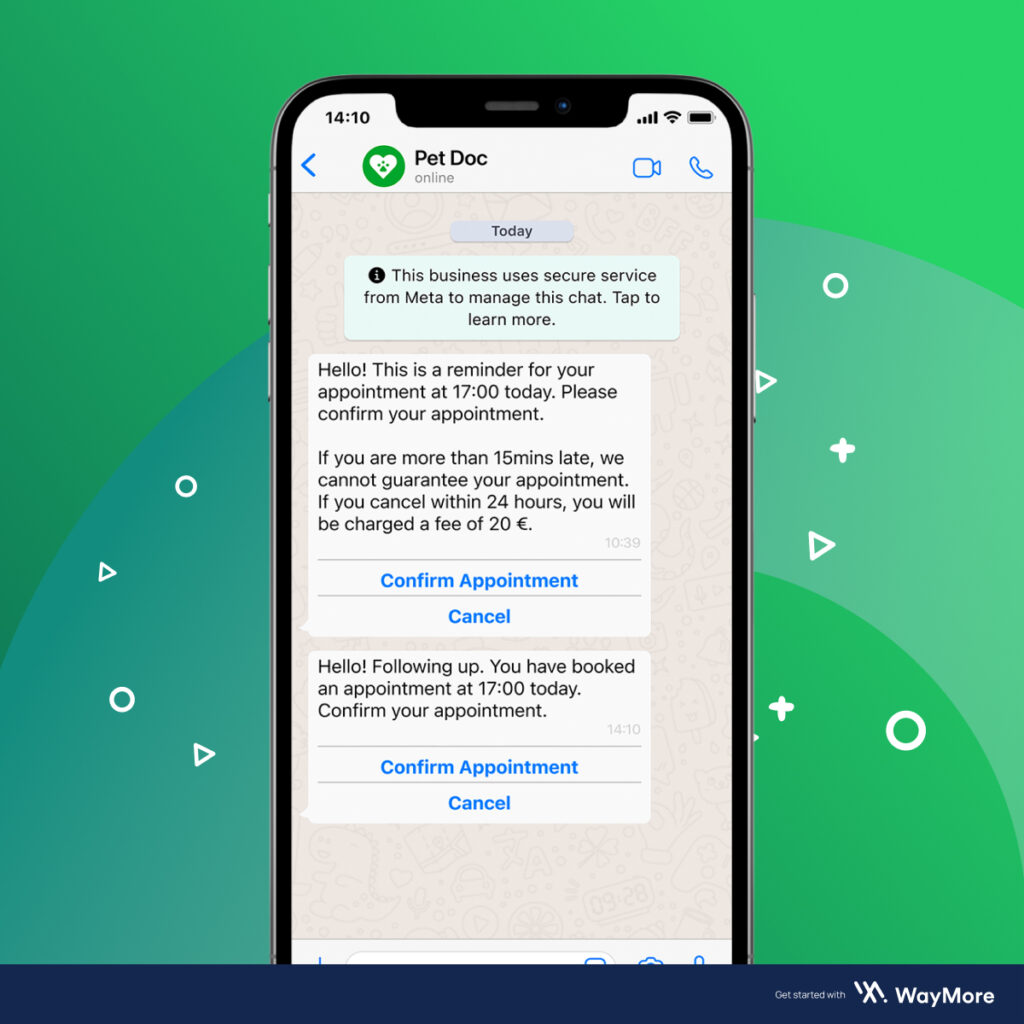
At 10:39, a utility conversation starts when a pre-made utility message is sent. Later, while the utility conversation is still ongoing, another utility message is delivered at 14:10. Since the template category used within the ongoing conversation window remains the same, there is no additional charge for a new conversation. As a result, there is only one charge for the utility conversation.
4. One template with both utility and marketing content:
If a template contains both utility and marketing content, it will be categorized as a marketing conversation, and charges will be based on that.
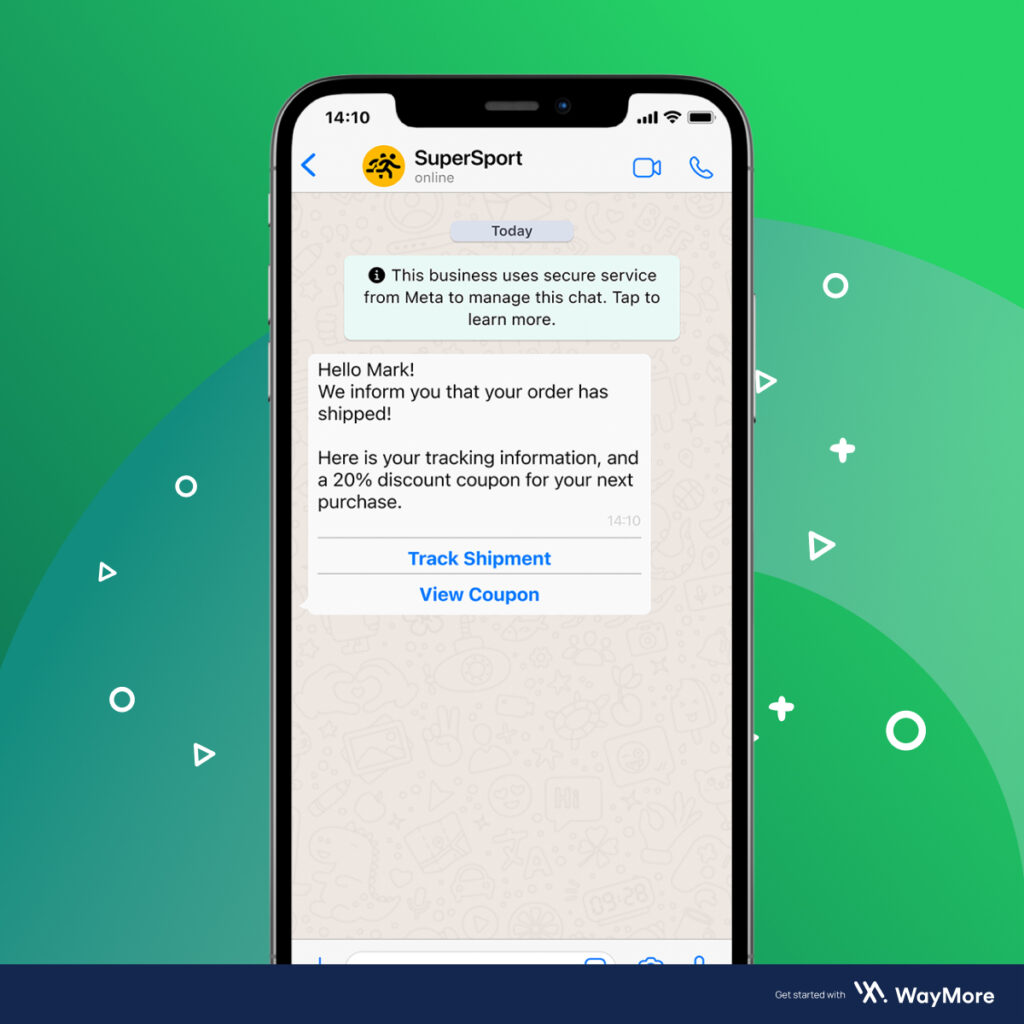
At 14:10, a template is sent to the customer, which contains content that serves both utility and marketing purposes, following the Meta template guidelines. When the template contains marketing content, it is automatically considered as marketing material. Therefore, there will be only one charge for the marketing conversation that includes this template’s content.
Will similar changes be implemented for other Meta products?
These changes specifically apply to the WhatsApp Business Platform, and there is no mention of any pricing changes for other services such as Facebook Messenger for Business and Messenger API for Instagram.
To fully utilize WhatsApp’s capabilities, including customer support, one-time passwords, and marketing messages, it is recommended to use the WhatsApp Business Messaging Platform.
WayMore can give you access to the official WhatsApp Business Messaging Platform and help your business make the most of the messaging app’s advantages.
WayMore can give you access to the official WhatsApp Business API
If you have any questions about the new WhatsApp changes or need assistance with getting started on WhatsApp Business, feel free to get in touch with our experts.




